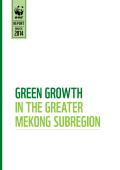Over the past decade, Asia and the Pacific has made significant progress in achieving the Millennium Development Goals. However, accelerating climate change is threatening to reverse these gains, and those who are already economically and socially vulnerable are likely to suffer soonest and most. To enable member countries cope with the inevitable impacts already locked into the climate system, as well as to transition them to low-carbon economies, ADB is working with urgency to put in place integrated solutions that will address both the causes and consequences of climate change in the region.
In 2009 to August 2011, ADB’s climate change-related interventions span a total of more than 110 projects, involving an investment of about $10 billion. During the same period, ADB has also provided more than $245 million in technical assistance to improve knowledge and capacities, support policy and institutional development, and ensure the feasibility of investments related to climate change.
This report discusses the opportunities presented by the Brazilian Amapá State government’s intention to make the transition to a green economy. It explores initial progress in green policy and activity, and associated dynamics in the political economy, and lays out a broad but feasible set of sectoral and cross-sectoral policy options. The paper also offers an initial assessment of a pioneer, inclusive scheme of payments to small producers for forest-based environmental services: pro-extrativismo programme. It draws on lessons from Amazonas state that can help to inform Amapá’s green economy strategy and concludes with recommendations for further technical collaboration, and for priorities in sectoral policy and cross-sectoral enabling conditions, with a focus on government leadership.
This report on inclusive green growth by infoDev and the World Bank reveals valuable insights from community outreach workshops conducted in South African townships for the Climate Innovation Center (CIC) in South Africa. The report does not present a one-size-fits-all solution to implement inclusive green growth strategies across all developing countries. The reports findings are observed in light of the Gauteng Climate Innovation Centre, which aims to facilitate and foster innovative clean technology entrepreneurship within the context of the surrounding township communities.

Mekong countries remain relatively well-endowed in natural capital, but signs of pressure and stress on the region’s natural capital are becoming more apparent alongside rapid rates of growth and market development. Escalating land, resource and infrastructure demands arising from urbanization and industrialization combined with a rapidly growing human population means that biodiversity and ecosystem services in the Mekong countries currently face unprecedented threats. At the same time, climate change is affecting ecological productivity and economic vulnerabilities in ways that may encourage even greater pressures on the natural system and cause progressively greater stresses to human and economic systems.
In this paper, the authors explore the many successful strategies and measures for climate resilience and low carbon development that communities and leaders have pursued at the subnational level. They draw on the rich and practical experiences of CDKN’s project partners and the broader ICLEI network.
They argue that the battle for climate compatible development will be won or lost in provinces, districts and cities. There are distinct challenges at subnational level– for example, future climate data for local and subnational levels is more uncertain than at larger scales, and subnational decision-makers face intense local pressure to act on the negative impacts of climate extremes and disasters. There are also unique opportunities. Subnational decision-makers often have a sound understanding of climate trends in their area, based on first-hand experience and local and indigenous knowledge. They have a good sense of solutions that are effective in the local context and they have the ability to mobilise local resources for implementation, including people’s time and knowledge.
